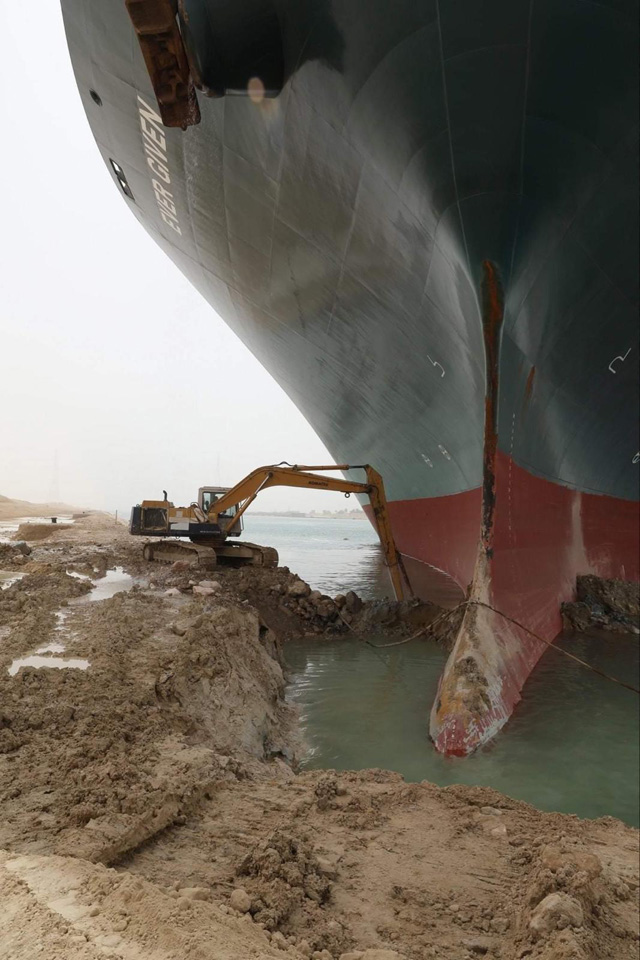A container ship has been stuck in the Suez Canal since Tuesday, and authorities say they’ll remove up to 706,000 cubic feet (20,000 cubic meters) of sand to free the ship as oil prices rose over 3 per cent on fears that the blockage could last weeks.
According to reports, the large container ship Ever Given ran aground while turning in the narrow channel, causing one of the largest shipping pile-ups in history.
Emmy winning host Jon Hansen, a former traffic reporter, shared his update on the traffic in the canal:
The initial probe into the blockage focuses on a seasonal sandstorm and a sudden burst of wind, according to WSJ.
The Suez Canal Authority (SCA) said in a statement that the 224,000-ton Ever Given was stranded on Tuesday morning after losing the ability to steer amid high winds and a dust storm.
Photos shared with the media by the SCA showed a digger removing earth and rock from the bank of the canal around the ship’s bow:
Pictures posted on social media had appeared to show the ship positioned diagonally across the canal, blocking its full width.

The United States has offered assistance to Egyptian officials to help dislodge the large cargo ship, the White House said Friday.
50 vessels a day, or about 10% of global trade, sail through the Suez Canal –it’s the fastest shipping route from Europe to Asia –everything from consumer electronics to food, ore and petroleum. As owners decide on next steps, Lloyd’s List estimates that the waiting game is costing $9.6 billion per day.
The SCA Chairman Osama Rabie downplayed the seriousness of the incident in his first public remarks on Wednesday, saying “an incident or two is not a bid deal. We are used to such crises, and are working to resolve it.”
CNN asked some kids what they would do and here’s what they said:
Closure of the canal, whether intentional or otherwise, can have serious economic repercussions, blocking off the quickest shipping route between the Mediterranean Sea and the Indian Ocean.
The canal has been intentionally closed a number of times, most notably in 1956 after canal’s nationalization and in 1967 during the war with Israel –it remained closed until 1975. Both instances were ordered by then-President Nasser in response to foreign aggression.




